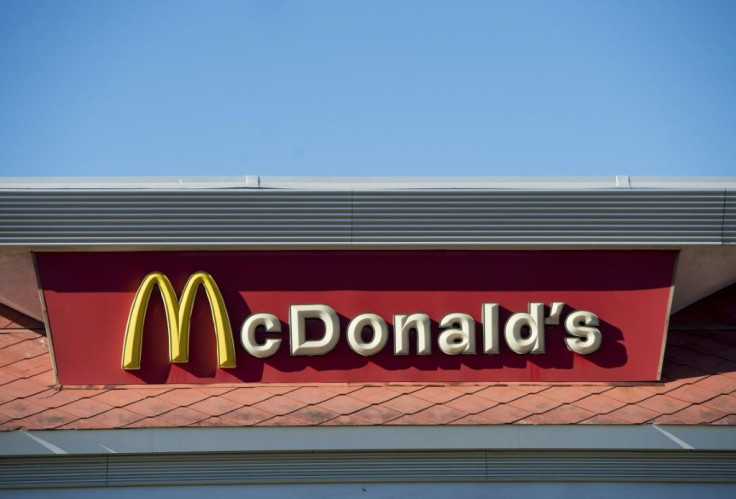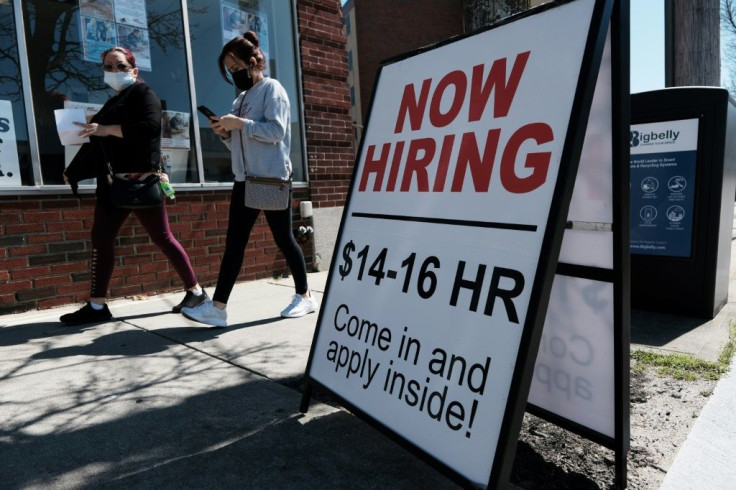Tight US Labor Market Prompts More Wage Hikes At Big Companies
McDonald's announced Thursday it will hike wages at US company-owned restaurants as it seeks another 10,000 employees, while Amazon launched a North American recruitment drive with signing bonuses of up to $1,000.
The inducements are the latest by big companies seeking to quickly staff up as the reopening US economy spurs a sudden uptick in consumer demand after the coronavirus-induced downturn.
The push to draw in more hourly workers come amid a pitched debate in Washington on whether US unemployment benefits have been extended too long and are now unnecessarily discouraging work at a time when Covid-19 vaccines are widespread.
McDonald's said it plans to lift hourly wages for about 36,500 "hardworking" employees by an average of 10 percent, boosting the entry level range to "at least" $11 to $17 an hour, while shift managers will make "at least" $15 to $20.

"Together with our franchises, we face a challenging hiring environment, and staying ahead means we must constantly renew our commitment to offer one of the leading employment packages in the industry," McDonald's USA President Joe Erlinger said in a message to employees.
The pay increases mean the average hourly wage at company-owned restaurants will reach $15, with some reaching this level this year, and some in 2024 under a "phased, market-by-market approach," the company said.
McDonald's also said it plans to add 10,000 new employees at company-owned venues over the next three months, citing stronger consumer traffic as the world's largest economy reopens.

These moves, however, still fall short of a $15 minimum hourly wage nationwide sought by labor unions and progressive politicians like Vermont Senator Bernie Sanders. The increase also does not pertain to McDonald's US restaurants owned by franchises, which accounted for more than half the revenues in the last quarter.
Sanders' effort to lift the US wage has so far not advanced in Congress, but more companies have been hiking pay in recent months to near or greater than $15 an hour, including Walmart, Target and Costco.
Amazon on Thursday announced plans to add 75,000 jobs in the United States and Canada, with signing bonuses of up to $1,000 and pay of more than $17 an hour.
The news comes after Amazon founder Jeff Bezos said last month the company needs a better "vision" for its workers, despite having prevailed in a bruising battle over unionization at one of its warehouses.
Earlier this week, fast-food chain Chipotle Mexican Grill said it was raising wages to an average of $15 an hour and establishing a $200 employee referral bonus for crew members, as well as $750 referral bonus for apprentices or general managers.

The chain also aims to hire 20,000 new employees in the United States.
The announcements come as companies in tourism, hospitality and other sectors bemoan difficulty finding workers to address rising need.
The problem has shone a light on supplemental US unemployment benefits of $300 a week. The benefits, set to run through September, were enacted as part of President Joe Biden's $1.9 trillion relief package and approved on a party-line vote.
Biden administration officials have argued that the programs are needed because many parents still have to tend to children schooling from home in regions where the pandemic has not been tamed.
Federal Reserve Governor Christopher Waller said the labor crunch was a "real problem," but would prove temporary.
"As vaccinations continue to climb, fears of reentering the labor force should decline," Waller said in a speech Thursday. "By September, most schools and daycare facilities are expected to fully reopen, resolving recent child-care issues for many families," he said, adding that the US unemployment benefits will expire in September.
But Representative Nancy Mace, a South Carolina Republican who represents the tourist destination of Charleston, said a "massive labor shortage" meant that restaurants in her district were having trouble meeting the needs of visitors.
"It turns out when you pay people to stay at home and not go to work, they actually do that," she said in a speech from the House floor. "Employers are desperate to find employees, everywhere."
Countering that view was labor economist Heidi Shierholz, who said the unemployment benefits were needed and backed Biden administration initiatives to extend vaccine distribution and build more child care facilities.
"Many leisure and hospitality jobs have become far harder and riskier since Covid," Shierholz said on Twitter. "Well-functioning labor markets would account for this by offering higher wages."
Shierholz also waded into a debate on whether rising wage inflation in leisure and hospitality poses a risk of inflation in the broader economy.
Noting that the leisure and hospitality labor market is "very segmented-off from other sectors" and that wages in these sectors still lag most other industries, Shierholz said the sudden increases "are not going to create broad wage pressure."
In recent weeks, the stock market has seen occasional waves of selling on fears that inflation could spur a sudden shift in US monetary policy. On Wednesday, the Labor Department reported consumer prices were 4.2 percent higher last month than in April 2020, their biggest year-on-year increase since 2008.
© Copyright AFP 2024. All rights reserved.





















